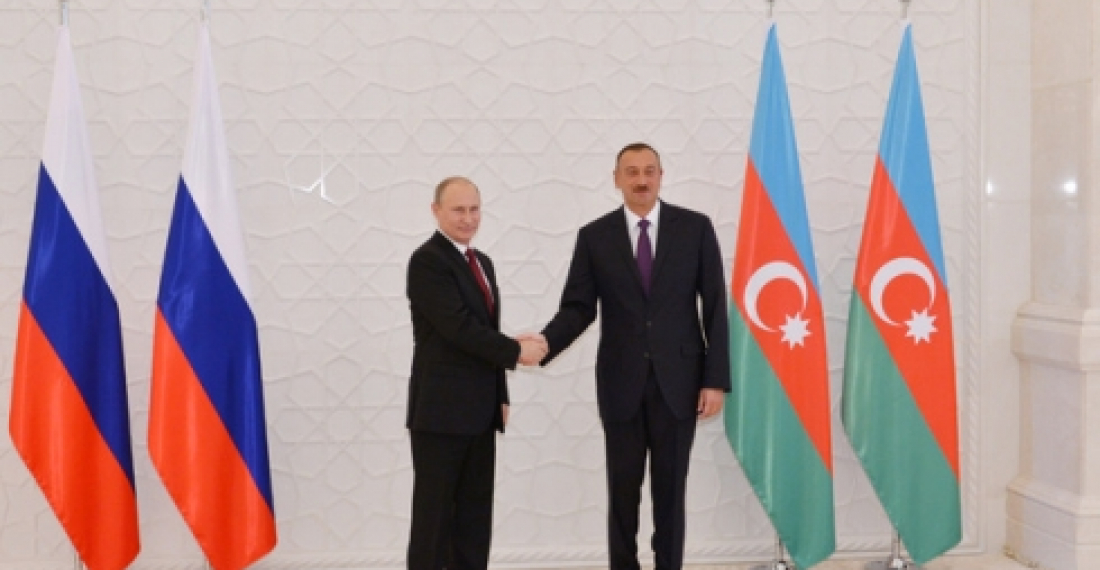The Russian President Vladimir Putin arrived in Baku on Tuesday at the head of a powerful delegation of Ministers and State officials for talks with President Ilham Aliev and members of the Azerbaijani Government. This visit is seen as one of the most important efforts by Russia in recent years to reach out towards Azerbaijan. Relations with the two countries have often been strained because of perceived Russian support for Armenia.
Coinciding with the visit of the Russian leader, ships of the Caspian Flotilla of the Russian Navy also anchored in the Port of Baku on what has been described as a friendship visit.
Speaking to journalists after their meeting the two Presidents emphasised the closeness of Russian-Azerbaijani relations. President Aliev said that in the discussions Russian and Azerbaijani positions coincided on all issues. On his part President Putin praised the level of relations between the two countries and said there was potential to do more in many spheres.
President Putin also spoke about the Nagorno-Karabakh conflict and said that Russia was helping to find a solution to this conflict, and that the only way to solve the conflict was through political means. The Russian leader also expressed hope that progress will be made in discussions on the delineation of boundaries in the Caspian Sea and other issues related to environmental challenges in the Caspian.
source: Commonspace.eu with agencies.
photo: President Putin and President Aliev at the start of their talks in Baku on 13 August 2013. (picture courtesy of the Press Office of the President of Azerbaijan.)







